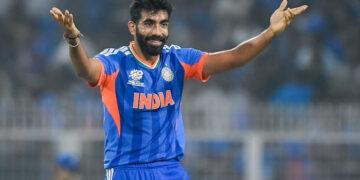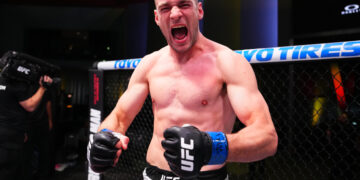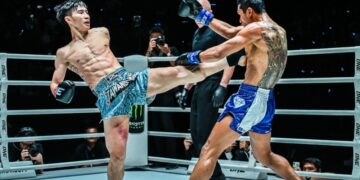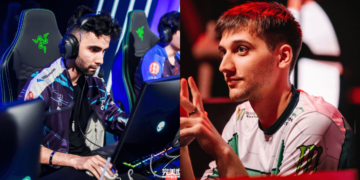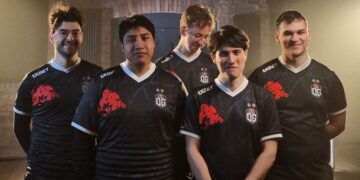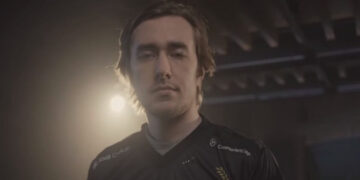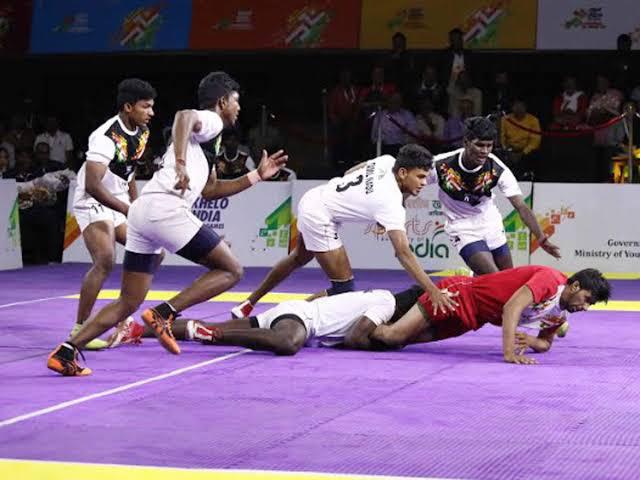You’ve probably heard that martial arts training builds character, discipline, and confidence, but did you know it can also help children with attention-deficit/hyperactivity disorder (ADHD) manage their symptoms? In a fast-paced, academically driven place like Singapore, many kids spend their weekends shuttling between tuition classes, with their only downtime often spent glued to a screen. With limited opportunities for physical activity and mindful engagement, it’s no surprise that some children struggle with focus and self-regulation. Martial arts offers a much-needed balance, encouraging movement, structure, and mental clarity in a way that supports their overall development.
Studies show that structured, movement-based activities like Muay Thai, Brazilian Jiu-Jitsu (BJJ), Wrestling, and Boxing can be powerful tools that help children with ADHD with focus, impulse control, and behavior regulation.
This article explores what research says about the benefits of martial arts for children with ADHD, how structure and physical activity support their development, and practical tips to help your child get started.
Why Structure Matters For ADHD
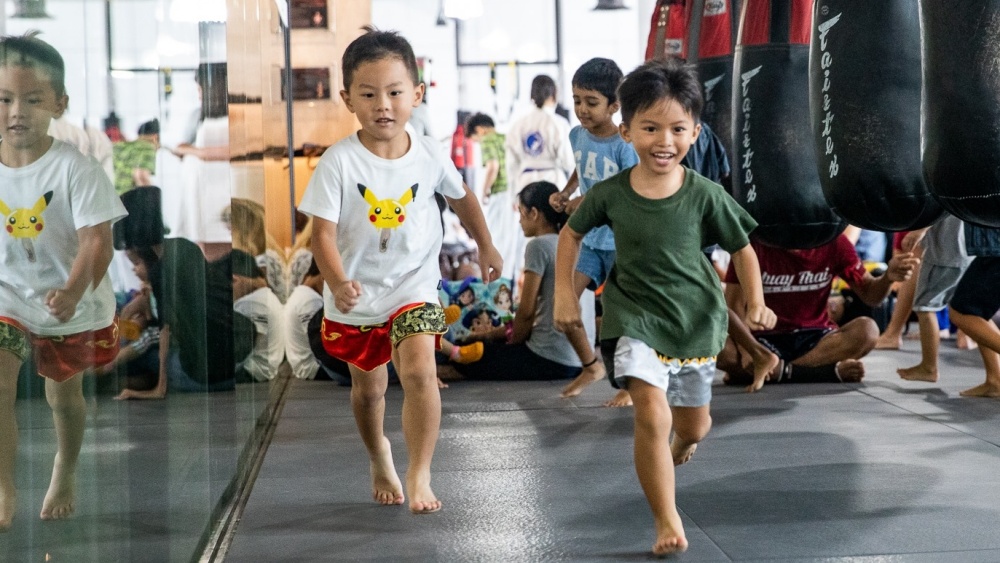
Martial arts provides structure, focus, and routine—helping kids with ADHD channel energy, improve attention, and build social skills through clear, routine training.
ADHD often makes it hard for kids to sit still, resist distractions, or finish tasks. Martial arts classes operate on clear, predictable routines which bring much-needed structure:
- Warm-Up Drills: Every training session kicks off with dynamic stretching and light cardio to get children’s bodies and minds ready.
- Skills Practice: Techniques are broken down into simple steps, and students learn them by drilling them repeatedly with training partners until they become part of their muscle memory.
- Partner Work: Sparring allows children to practice techniques they’ve learned in a safe and controlled setting. It improves a child’s ability to communicate and teaches them social cues, as sparring requires them to constantly communicate with training partners under the guidance of their instructors.
One study found that children with ADHD who followed a consistent martial arts program improved their on-task behavior considerably compared to controls. That’s because routines act as external organizers, reducing the mental chaos that often overwhelms ADHD brains.
Martial Arts Training Provides A Physical Outlet For Hyperactivity
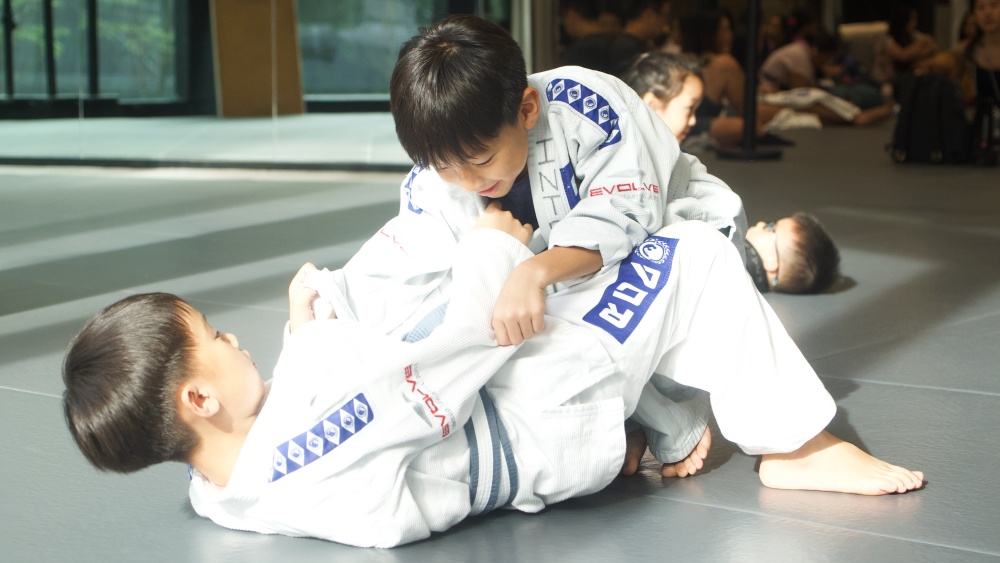
Martial arts helps kids with ADHD burn excess energy and improve focus through intense drills, skill challenges, and structured sparring—turning hyperactivity into productive training.
Kids with ADHD typically have higher energy levels and may struggle to sit still for short periods. Martial arts provide a safe, structured venue to burn off excess energy by providing:
- High-Intensity Drills: Pad work and conditioning circuits help elevate heart rates while channeling the natural energy and excitement that children with ADHD often experience.
- Skill-Based Challenges: Martial Arts encourages kids to learn complex movements which engages both body and mind, helping to reduce boredom and improve focus.
- Controlled Sparring: Children are allowed to spar once they have the skill set to do so under the supervision of their instructors while wearing protective gear. It allows them to channel their hyperactivity into focused training. Some decorated martial artists like Gary Tonon credit their success to their ADHD, as their hyperfocus allows them to develop a deeper understanding of techniques.
One study reported that children showed significant reductions in hyperactivity and impulsivity scores on the Conners’ Rating Scale after just eight weeks of martial arts training! The physical exertion helps children self-regulate, so they’re ready when it’s time to sit still in class later.
Increasing Focus Through Mindfulness And Skill Mastery
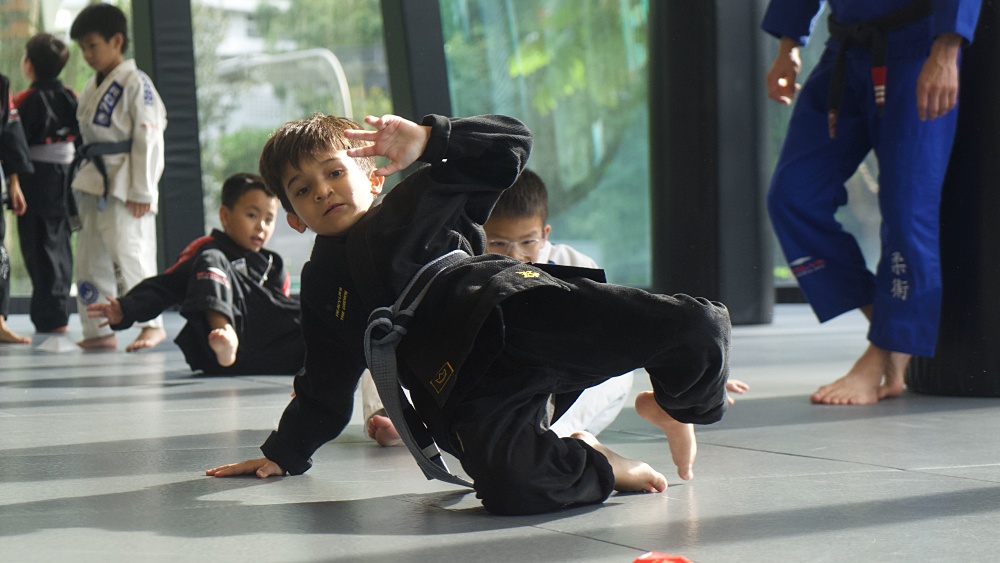
Martial arts builds both mind and body, using mindfulness techniques like breathing, visualization, and focused practice to help kids—especially those with ADHD—improve attention and self-discipline.
Martial arts training helps children to strengthen their minds as much as it builds them up physically. Many combat styles incorporate mindfulness practices into their curricula to help children improve their ability to focus. These include:
- Breathing Exercises: Kids learn breathing exercises during warm-ups that help pause mental chatter.
- Visualization: Instructors guide students to picture techniques before performing them, reinforcing neural pathways.
- Meditation: Practicing techniques requires children to slow down, stay present, and concentrate—helping them build focus and mental clarity over time.
Research shows children who learn martial arts score higher in attention control tests compared to those who engage in other sports. The improved focus martial arts teaches children with ADHD will carry over into other aspects of their lives. They’ll be less likely to skip homework, chores, and other everyday tasks because of it.
Social Skills And Behavior Regulation
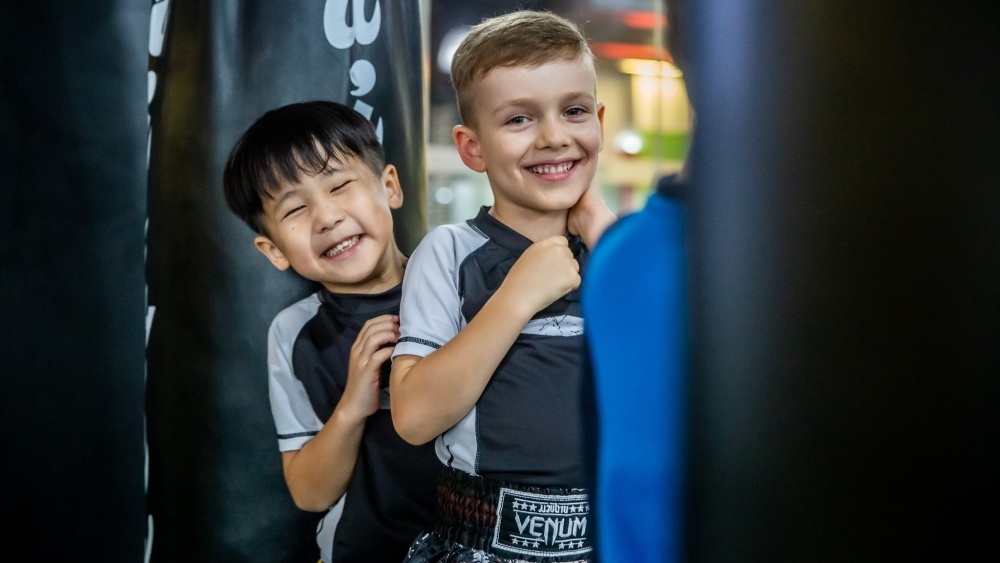
Martial arts teaches kids impulse control, patience, and respect through structured partner drills and clear rules—leading to better behavior and improved social skills.
Social interaction and impulse control often go hand in hand. Some ways martial arts training helps children regulate their behavior include:
- Children Learn To Wait Their Turn: Performing partner drills requires lots of communication and patience.
- Respect Authority: Children have to be respectful to authority figures like instructors and their peers during training, helping to build positive habits.
- Follow Rules: Training has clear rules everyone has to follow to prevent accidents, teaching children to respect boundaries.
Research shows that kids who train in martial arts exhibit lower rates of aggression and healthier relationships with peers. A meta-analysis of 15 studies showed moderate improvements in the social functioning and behavior regulation of children who practice martial arts versus children who don’t exercise regularly.
Choosing The Right Program
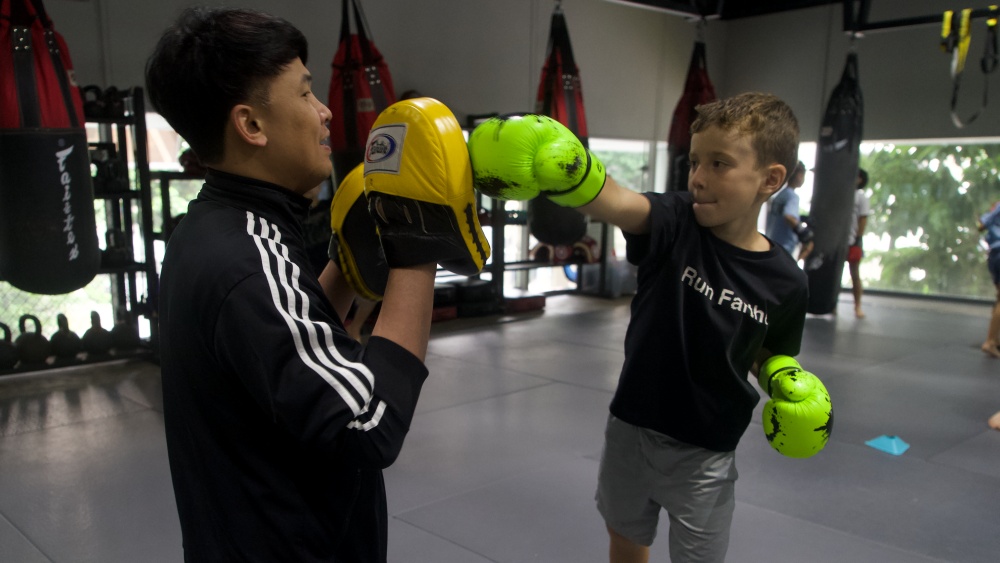
Programs led by experienced instructors often offer structured curriculums, smaller class sizes, and a positive environment for kids—just like what you’ll find in Evolve MMA’s Little Samurai program.
Not all martial arts classes are created equal. Here’s what to look for:
- Experienced Instructors: Find a dojo with accomplished instructors who have experience working with children, particularly those with ADHD, like Evolve MMA!
- Structured Curriculum: Find a dojo with a structured curriculum specifically for children, like Evolve MMA’s children’s program. The structure provides children with clearly defined goals to work on, making training more engaging.
- Class Sizes: In some cases, smaller classes mean more focus, more guidance, and a better experience for your child.
- Positive Environment: Find a martial arts school where instructors emphasize effort over perfection and celebrate small wins.
- Tour A Few Schools. Ask about their experience with children who have special needs. A good program welcomes questions and offers trial classes to give your child first-hand experience of what training looks like.
Tips For Parents With Children With ADHD
Some of the little things parents can do to help their child get the most out of their martial arts training include:
- Stay Involved: Watch classes, chat with instructors, and practice drills at home. Join classes if you’re up for it. Parents have as much to gain as their children!
- Celebrate Progress: Celebrate milestones like belt promotions and mastery of techniques to keep motivation high for your little one.
- Encourage Consistency: Regular attendance, two or three times per week, yields the biggest gains, so encourage your child to train consistently.
Start Your Child’s Success Story
Martial arts offer children with ADHD much more than physical fitness; it teaches structure, focus, self-control, and social skills—things children with ADHD typically struggle with.
Training martial arts like Muay Thai, BJJ, Wrestling, or Boxing can reduce ADHD symptoms and set your child up for success in school and life.
Ready to see the benefits for yourself? Contact Evolve MMA to schedule a complimentary class for your little one. We’ll help your child channel their energy and build the skills they need to thrive on the mat, in school, and beyond!
Book your complimentary trial class with our World Champions below!
If you have any other questions regarding Evolve MMA and the programs we offer, you can get in touch with our membership executives at the following locations:
Evolve MMA (Orchard Central)
181 Orchard Road
#06-01 Orchard Central
Singapore 238896
Phone: (65) 6536 4556
Evolve MMA (KINEX)
11 Tanjong Katong Road
#02-52 KINEX
Singapore 437157
Phone: (65) 6288 2293
Evolve MMA (Star Vista)
1 Vista Exchange Green
#02-26A The Star Vista
Singapore 138617
Phone: (65) 6539 9590
Nowadays, it’s common for teenagers to spend hours each day on electronic devices like smartphones, tablets, TVs, and gaming consoles. Most of them spend way more time staring at screens than they do on their…
Your child might be getting bullied if their lunch money often ends up missing, their clothes are torn, or they’re starting to come up with creative lists of excuses to skip school. Bullying is never…
Bullying remains a serious problem worldwide. Over 30% of students globally have been victims of bullying, according to a UNESCO report. The consequences of bullying aren’t trivial either, with victims often feeling humiliated and helpless….
Any parent already knows that raising children can be as challenging as trying to juggle two flaming swords while blindfolded on a treadmill. Many are turning to martial arts classes to get their kids off…
As children grow, developing life skills like emotional resilience is essential to help them navigate life’s challenges. While these skills can be learned through experience and guidance, activities like martial arts offer a powerful and…
Martial arts legends can inspire children—or anyone else—to dedicate themselves to learning more about these ancient arts. Children typically have short attention spans, but they’ll sit through exciting stories about warriors battling tigers with bare…
Feeling a little anxious heading into your first sparring session in martial arts is perfectly normal. You’ve never had the chance to test your skills against resisting opponents, and you’re unsure about how well you’ll…
Intermittent fasting (IF) has been popular among martial arts fighters for decades, with legends like Georges St. Pierre swearing by its effectiveness. While the idea of skipping meals before intense training often sparks debate, this…
The cross is one of the most powerful punches in a boxer’s arsenal, and it also covers more distance than every other type of punch besides the jab. It’s an outside range weapon that can…
Brazilian Jiu-Jitsu is known for its highly technical ground game, but the truth is every match begins standing. Whether it’s a competition setting, a self-defense scenario, or an MMA fight, learning how to bring your…
In striking arts, size and reach are important tools, but they don’t guarantee success. When facing a smaller opponent, the challenge often lies in their speed, mobility, and ability to slip into range before you…
We’ve all been there before, that moment when life throws a spinning heel kick to your face that you didn’t see coming. It doesn’t take much to make that feeling even worse. Bills pile up,…


